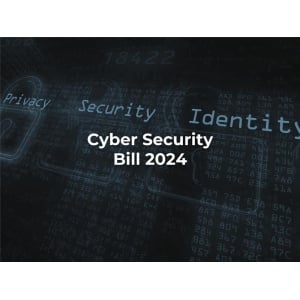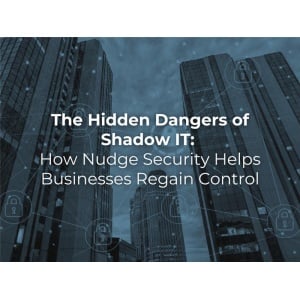When you see reports of recent cyber attacks in the news, the headlines often include brands that have become household names. While these breaches are worth reporting, it creates an illusion that threat actors only target large enterprises.
However, if you are a small business with customer information stored, you are just as much as a target. Between July and December of 2021, 71% of data breaches reported to the Office of the Australian Information Commissioner (OAIC) impacted fewer than 100 people. So, the size of your customer database is not a factor when cyber criminals pick their targets.
If you want to protect your business, it is crucial to understand these attacks and how you can protect yourself from them. This blog will discuss how cyber security breaches impact SMBs and provide tips on protecting your business from attacks.
How recent cyber attacks might impact your business
While many enterprise-level data breaches impact individuals, your business could be at risk of cyber attacks if people within your business have their work email addresses associated with that company.
For example, threat actors could attempt a business email compromise (BEC) attack with this information. BEC attacks occur when cybercriminals gain access to company email accounts and conduct directed attacks on the victim’s contacts to gain even more information or trick the recipient into sending funds to the cyber criminal’s bank account.
Phishing attacks to known email addresses, including those associated with your business, could also be leveraged by threat actors to gain access to credentials or even deploy a ransomware attack. Therefore, it is imperative that you have the proper protections in place and that your team are aware of best practices for protecting themselves and the business.
Prevent your business from becoming a target of cyber attacks
If you are a small business, do not dismiss an attack simply because of your size. You still collect valuable data, which threat actors will easily exploit if you do not have the right protections. Some of the steps you can take to protect your data include:
Mitigate phishing attacks
Email filtering and anti-spam solutions are one way to mitigate the number of phishing attacks that land in people’s inboxes. These solutions block malicious emails from reaching employees’ inboxes. Additionally, you should consider implementing two-factor authentication for email accounts, making it more difficult for threat actors to successfully breach them.
Educating your team on identifying and reporting phishing attacks is necessary to mitigate them if emails make it past your filtering software. Your team should be aware of common red flags, such as misspellings, spoofed email addresses, attachments or urgent requests for sensitive information. If someone receives a suspicious email, they should report it to the IT department or security team.
Safeguard your business with firewalls
A firewall is software that acts as a barrier between your computer and the internet. It prevents cyber attacks by blocking unauthorised traffic. If a threat actor attempts to access your network, the firewall blocks them.
Many different types of firewalls are available, and choosing one that is right for your business is essential. A managed service provider will have the expertise and resources to configure and manage your firewall properly. They will also update your firewall with the latest security patches.
Implement password management and MFA
One of the most important things you can do to protect your online accounts is to use strong passwords and manage them carefully. Threat actors will look for ways to break into accounts, and weak or stolen passwords are a convenient tool.
Using strong managed password can make it much harder for cybercriminals to breach your accounts. Many people use a password manager, an application that helps you create and manage strong passwords.
MFA is also a critical layer of security that can help prevent unauthorised access. Even if a threat actor has the correct password, they will need a code sent to the account owner’s phone via text or an MFA app.
Educate your team on recognising cyber attacks
As the world becomes increasingly digital, it is more important than ever to educate your team on cyber security best practices. With much of our lives and work now online, we must all know how to protect ourselves from cyber threats.
Training is integral to a company’s cyber security posture. By providing employees with training, you ensure that your team understands potential threats and how to protect themselves and the business. Cyber security training also helps employees identify potential vulnerabilities within their company’s systems and take appropriate action to mitigate them.
alltasksIT is your cyber security partner
Too often, we speak with companies that lack the security practices to protect against today’s cyber threats. You need a robust cyber security strategy as threats become more sophisticated and do not discriminate against business size.
Our cyber security solutions mitigate phishing attacks, implement firewalls, and secure credentials. We also provide training and information on top of the technical defences to improve your cyber security posture. Visit our Cyber Security Services page for more information on our offerings and expertise.






